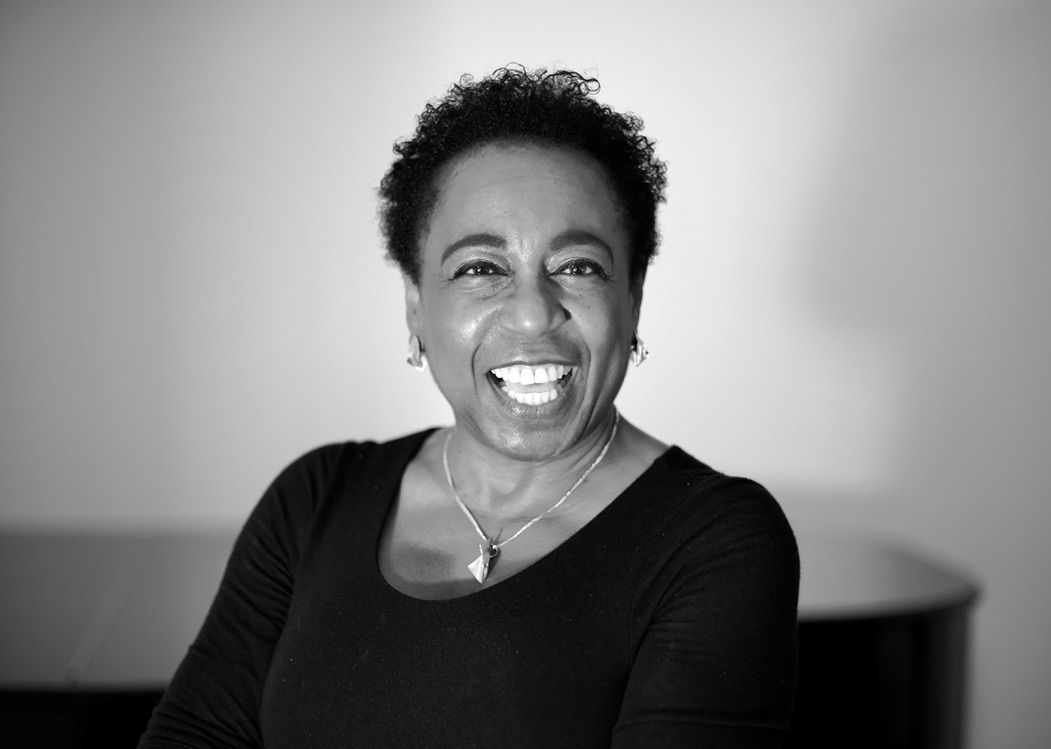Reports produced by research conducted into the economic status of talent in the workplace confirm time and time again that the black woman is paid less than her white colleagues. In terms of economic hardship, the implications of this can therefore be felt much worse in her life than in that of her counterparts, as is highlighted in a LeanIn report which although focused on the USA is relevant to the UK too. When we examine UK focused reports the situation is no different, as is evident in a work carried out by the LSE that states the black woman is least likely to be in the top 1% of earners in her organisation. Even in our beloved NHS, their black women employees are paid less than their white counterparts.
It is certainly not due to a lack of education or ambition as the black woman is one of the most educated in the community whether it is in the USA or the UK. It is also not due to a lack of ambition or a desire to advance her career.
To deal effectively with this and to take steps to proactively close the gap, we must at first understand why this is. Here are 7 reasons why this is the case and the actions that Yetunde Hofmann thinks can be taken to address each one.
-
The world of work is racist
Black people in the UK still face racism and in the world of work, the plight of the black woman is no different. She faces racism, exclusion and microaggression to varying degrees from outright exclusion and is therefore given fewer opportunities to visibly shine, which has a domino effect. This means she is more likely to be overlooked for promotion and the opportunity to earn more. In addition, she is likely to be working in an organisation in which the processes established to help drive the identification, development and advancement of talent are designed and implemented by a predominantly white HR function albeit in partnership with colleagues across the organisation. Furthermore, she carries the challenge of facing discrimination on two grounds – her race and her gender and it could be even more if she qualifies for one or more additional classifications of a minority. Therefore, no matter how well-intended or intentioned, the ability to genuinely appreciate how these processes may hold biases against the minority and the black woman will be lacking.
There are many ways in which an organisation that is serious about addressing this can go about doing so. The first thing to do is to start by establishing the facts within your own organisation. Find out the number of ethnic minorities and the number of black women in your organisation. Identify their pay levels, assess the gap between theirs and their white colleagues’ and put in a definitive action plan to close it. In addition, comply with the government guidelines by reporting your findings and publicly stating what you will do to drive change, setting a standard for others to follow and demonstrating that you genuinely care about ALL your talent including the black woman in your organisation. Secondly, encourage your HR department to hire within itself diverse talent and provide the investment resources to enable it to do so. Encourage your HR function and support its team in the root and branch review of all the people processes and in particular those to do with career advancement, performance management and reward to identify any and eradicate all areas of bias present. Finally, set meaningful realistic and stretching targets that when achieved will close the gaps and rectify the situation and incentivise against them.
-
The financial offer when recruited puts her at minus
One of the most commonly asked and yet discriminatory practices in the world of recruitment is asking a potential hire what their current salary is and then moving to adjust the pay offered to consider this information. The problem is this. A black woman who is likely to have been paid less than she really deserved in her former employment and discloses her last salary or compensation package is then likely to carry this status into her new company because her new pay will be based on her current one.
The easiest thing to do here is decide the pay and the pay band for the role into which you want to hire and stick to it, no matter the current pay point of the black woman you are looking to hire. If she is on or was on say £65k for a job that you are pricing at £120k and she meets the criteria and more for the job, then pay her the going rate and not £65k plus 20% or 30%, which is often what actually happens.
-
The absence of credible sponsorship
The black woman is less likely to have a sponsor. Yet the support of a sponsor is a great asset to anyone and in particular the black woman who is more likely to be behind those career-defining and enhancing decisions are being made or when the allotment of pay increase percentage is being distributed from what is a limited pot.
Every organisation that employs black women must work to ensure she has a credible sponsor and the more senior she is, the more important it is that she has one. I say credible because I have come to appreciate that there are people who are sponsors in name only and/or do the barest minimum they can in the name of sponsorship. For example, I came across a senior leader whose idea of sponsorship was to send short-term online courses the way of the black woman he sponsored whilst pleading ignorance of the opportunities for a promotion coming down the line which, given his level in the organisation, was unbelievable.
Therefore, identify individuals who are willing to be genuine sponsors and educate them on what it means to be one. It means being the internal agent for the black woman, being her advocate, amplifying her voice, recommending her for promotion and encouraging colleagues to take a risk on promoting her based on her potential.
-
Lack of presence in senior roles
It is clear that the more senior a leader is in an organisation the higher her pay will be. The fact that there are fewer black women in senior roles is also a testament to the fact that she is less likely to be paid the same as her white colleagues. She is unlikely to be as senior as they are.
Resolving this is straightforward. It means being willing to hire the black woman direct into C-suite and senior leadership roles, requesting that executive search firms proactively look to put black women on their long and shortlists for search projects. It means also being willing to be patient with the executive search firms and allowing them to take the required time to find a strong shortlist of talent including the talented black woman. It also means being willing to challenge your status quo when it comes to examining your shortlist and interviewing your candidate. Your best candidate may not be your ‘ideal’ candidate and it takes leadership and an eye for the long term and genuine prosperity of the business to select a diverse candidate that may not meet all the criteria but shows excellent promise and potential.
-
Unawareness of career advancement processes
Black women are less likely to be aware of the hidden keys to career advancement and promotion within their organisation. This is because they are less likely to be mentored or sponsored as I said earlier on in this article. A lack of awareness results in an inability to navigate the corridors of power, identify the stakeholders both seen and unseen in the decision-making process of pay increases, performance ratings and promotion boards. All of which come with a pay increase and pay gap closing opportunities.
Therefore, in addition to the assignment of a sponsor to the black woman in your organisation, choose to become her ally. An ally not only calls out behaviours that are not in support of her wellbeing and ability to feel like she belongs, but an ally also is one who looks out for her and actively ensures that her network in the organisation is strong and diverse. This is all the more powerful if among her allies are her boss and her peers – the others in her team.
-
Longevity in service
The black woman is more likely to stay in her job even though she may feel excluded and she stays because she is likely to be the main caregiver at home and/or the main earner. The longer the length of service in one company, the less likely she will have a significant jump in her salary and/or total compensation package which is what happens when people leave one company to join another. The pay increases tend to be higher. So, in having a black woman with long service in your company, you may have two challenges – a disengaged employee who feels excluded and one who is paid less than her peers.
The first thing to do here is to acknowledge that there is a problem and one that is caused by a systemic problem in your organisation – the presence of bias and exclusion. This sends a signal of hope not only to the black woman in your organisation but also to her allies and other minorities that the leadership in your organisation is paying attention and is one who cares about the wellbeing of talent and the value of diversity. Secondly, obtain the data to understand the depth of the problem, all the time communicating internally and where possible, also externally to encourage your peer organisations to do the same. Thirdly, make it one of your and your team’s non-financial objectives to review the pay rates of people who have been in the same job for a long time, benchmark them against the external market using more than one source and take the steps to implement any recommendations made. Engage in career development discussions with each of the black women and/or delegate the conduction of those discussions to key direct reports, checking in on the outcomes, agreed next steps and holding them accountable to the execution of those steps.
-
Invisible role models
Role models are important for all talent and in particular the black woman. There is a lack of role models in senior positions in organisations. Role models encourage women and black women to enter professions in which they are needed, according to a STEM report. Role models at senior levels and high paying roles in an organisation also motivate the black woman and inspire her to pursue her career aspirations. It makes sense that seeing people who look and sound like you in senior roles in your organisation tells you that one day, you too can be in a similar position and can earn the same. The more black women you have in senior roles the more likely they are to earn a similar pay as their white counterparts.
To solve this problem, ensure that your black women have role models and an environment in which they can network, learn from and with other women like them. Establish an employee resource group of worth and give them the resources and platform to contribute to business decisions which will raise their profile and to the review of the people processes that impact them. Nominate your black woman to attend external leadership programmes designed specifically for the black woman in an organisation so that she can strengthen her external network and learn with and from women like her from across a variety of industry backgrounds. This will not only build her confidence but will also give her a ready network of people from which she can learn and gain advice without the added influence and background of her organisation’s politics.
In summary, the reality of the pay gap between the black woman and her white colleagues is one that presents a challenge that may seem insurmountable. Like any challenge, when addressed with serious intention and commitment and underpinned by a genuine belief that it is the right thing to do, it is a challenge that can be resolved and resolved to the benefit not only of the black woman but to the benefit of ALL the talent in the organisation.
Yetunde Hofmann is a Board-level executive leadership coach and mentor, global change, inclusion and diversity expert, author of Beyond Engagement and founder of SOLARIS – a pioneering new leadership development programme for black women. Find out more at http://www.solarisleadership.com/ and find Yetunde @Yetundeh on Twitter.











